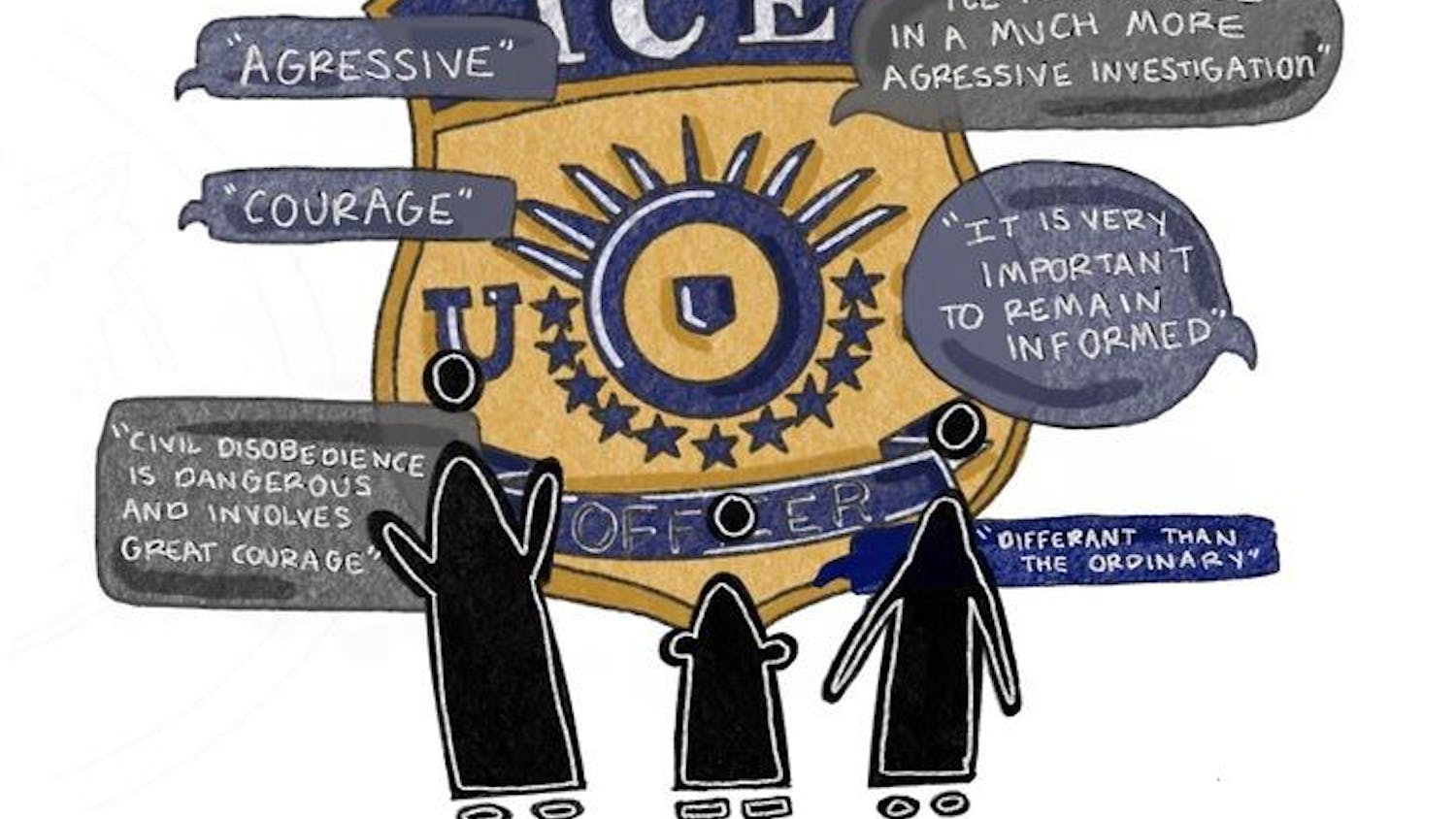The Council on American-Islamic Relation’s Georgia chapter (CAIR-Georgia) and other civil rights organizations sent Emory University President Gregory Fenves a letter today demanding that the University protect Palestinian, Arab and Muslim students from anti-Palestinian, racist, xenophobic and Islamophobic harassment and doxxing on campus and reaffirm students’ right to advocate for Palestine.
The group claimed that Emory violated Title VI of the Civil Rights Act of 1964 by holding a “biased” stance against these students and failing to respond when they reported mistreatment, opening the door to “active harm, intimidation of students, and a hostile campus environment.”
Title VI of the Civil Rights Act of 1964 prohibits institutions that receive federal funding from discriminating against individuals on the basis of race, color or national origin.
“As a university obligated to provide an educational environment welcoming to all regardless of race, color, or national origin, Emory cannot justify its failure to address the hostile anti-Palestinian and Islamophobic environment students have been subjected to on campus and by its own administration,” CAIR-Georgia wrote in the letter.

CAIR-Georgia Legal Director Javeria Jamil said that University leadership was aware of students’ concerns since Oct. 9 or 10.
“The students have filed numerous bias reports, the students have talked to numerous faculty and administrators and the University has not done anything to date that we are aware of or the students are aware of, to fix the Islamophobic harassment and doxxing that's been happening against the students,” Jamil said.
Assistant Vice President of University Communications Laura Diamond told The Emory Wheel that the University is still “reviewing the letter” and did not provide a response to the specific allegations in the letter.
“Emory does not tolerate any action that discriminates against groups or individuals because of their nationality, identity or beliefs,” Diamond wrote.
An executive member of Emory Students for Justice in Palestine (ESJP), who requested to remain anonymous due to fear of retaliation, said that the University has not followed up on any of the bias reports filed.
“We’ve submitted … at least 10 or more [bias reports] at this point,” the student said. “We hear back saying the bias reports are being processed, as it says, … but as of now, we still have not gotten any sort of concrete feedback from these various reports.”
CAIR-Georgia outlined several alleged incidents of harassment that members of ESJP, as well as Arab and Muslim students, have faced. They include accusations of derogatory remarks on LinkedIn, doxxing, violations of the University’s Respect for Open Expression Policy and in-person harassment. The letter claimed the perpetrators ranged from current students, faculty and alumni to outside parties on campus.
“The discrimination, harassment, stereotyping, disparate treatment and racial profiling … are not isolated instances, but rather they are the product of deep-rooted, dehumanizing bigotry against Palestinians and their allies in an attempt to suppress speech supporting Palestinian rights on college campuses, which the University not only did nothing to address, but further contributed to by committing discriminatory acts of its own,” CAIR-Georgia wrote in the letter.
As a result, the group alleged in the letter that Palestinian, Arab and Muslim students, as well as students who are “perceived” as Palestinian or Muslim or who are “associated with Palestinians,” are afraid to leave their rooms to participate in campus life and go to class or unable to focus on school work.
“Palestinian students have especially suffered as a result of this open hostility and fear,” CAIR-Georgia wrote. “Many are experiencing trauma and are afraid of seeking help from the University because of the fear that their names and information will be released to external parties, or that identifying as Palestinians who believe in their own equality and right to life could lead to criminal consequences.”
Several other organizations, including the Asian American Advocacy Fund, Democratic Socialists of America Atlanta chapter, Jewish Voice for Peace Atlanta chapter and Kennesaw State University’s (Ga.) Muslim Student Association signed the letter.
Another executive member of ESJP said that students’ academic performance are suffering due to the time it takes to file bias reports and reach out to university officials.
“Just being able to be a student to the full extent that you want to be, has been limited because of the aggressions, because of feeling unsafe on campus and having to do the heavy lifting that the University should be doing on its own if it was doing its job correctly,” the student said.

Jack Rutherford (he/him) (27C) is a managing editor at The Emory Wheel. He is from Louisville, Ky., majoring in economics on the pre-law track. When not working for the Wheel, he can normally be found rowing with Emory Crew, where he serves as president, or at an Atlanta Opera performance. In his free time, Rutherford enjoys listening to music and walking in Lullwater.

Madi Olivier (she/her) (25C) is from Highland Village, Texas, and is majoring in psychology and minoring in rhetoric, writing and information design. Outside of the Wheel, she is involved in psychology research, the Emory Brain Exercise Initiative and the Trevor Project. In her free time, you can find her trying not to fall while bouldering and obsessively listening to Hozier with her cat.








